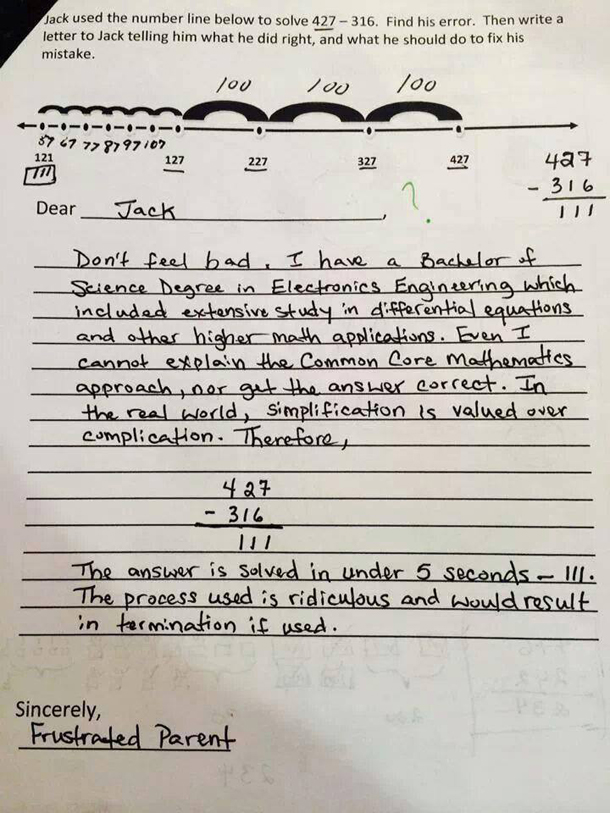 Ah yes, I'm sure we've all seen this or similar postings around the internet - the famous "too smart for elementary school" parent who's really "showing those teachers".
Ah yes, I'm sure we've all seen this or similar postings around the internet - the famous "too smart for elementary school" parent who's really "showing those teachers". The problem I see here is a parent who despite his MANY years of education, failed.
He failed to read directions.
He failed to answer the question being asked.
Without knowing what grade level this problem is aimed at (I'm assuming 1st or 2nd grade), the problem here is not that "math has changed". The problem is that the problems have changed.
This highly educated parent (and many of those educated as much or less who see and share this) all fail to see that the question is NOT 427-316 = ???
Instead, the question is demonstrating a method of subtraction (more on that strategy here) and asking what went wrong for the student. It's about error analysis.
I bet if Mr. Engineer Dad had seen the problem labeled Error Analysis his chest would've puffed with pride to see little Engineer Child learning such advanced math.
And yet, when it's demonstrated at an elementary school level Mr. Engineer can't figure out how to go backwards in time and imagine NOT knowing what he knows. Not once in his condescending explanation did he even mention that Jack forgot to subtract the 10. His child on the other hand probably counted the 3 100 jumps (300) and the 6 1 unit jumps (6) and realized that Jack only took away/moved back 306, not 316.
Math instruction is not JUST about finding answers. Gone are the days of math teachers preaching that you'll never have a calculator in your pocket - we KNOW you do! Now we ask students to explain their thinking (more on that next week) and locate errors in someone else's. Why? Because THAT is what learning math is about. It's about knowing HOW to arrive at an answer given any circumstances and how to do so in the MOST EFFECTIVE way possible.
(FWIW - that sounds a lot like what the engineers I know do all day, every day.)
Comments
Post a Comment